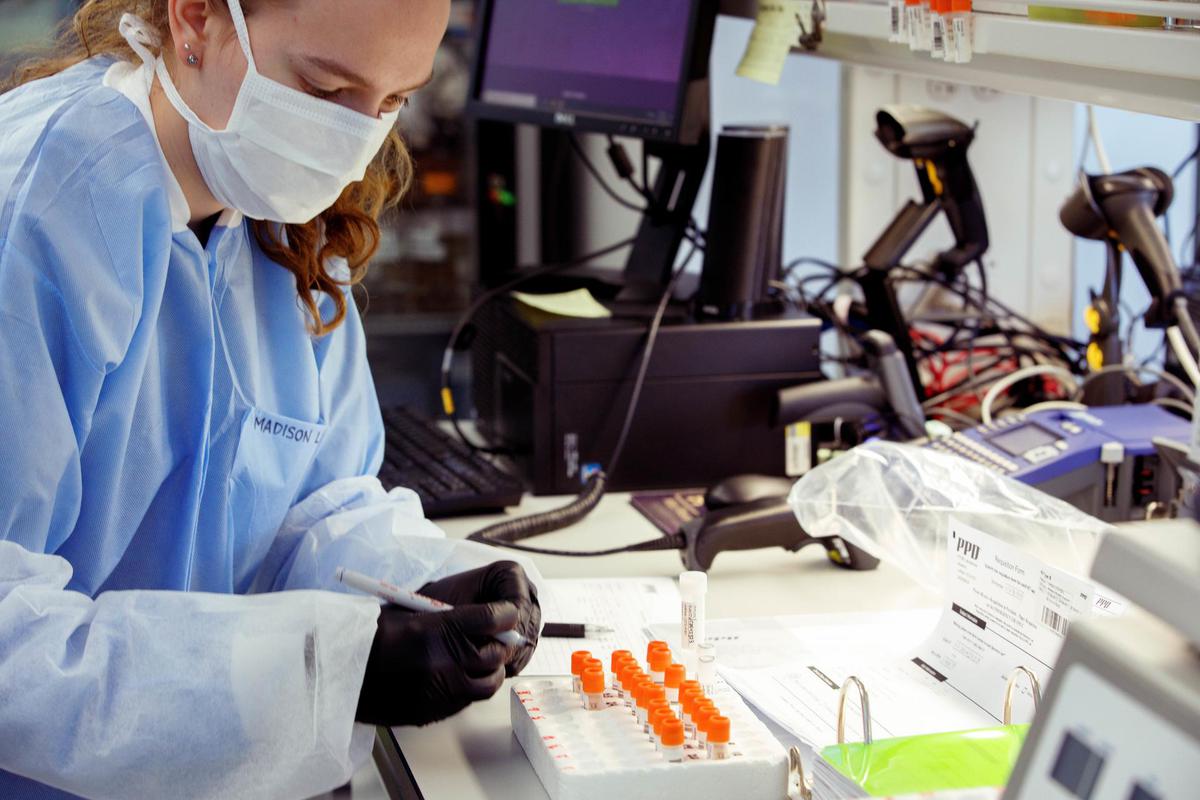By Kristen Mitchell
Members of the GW Emergency Medical Response Group—known as EMeRG—were relieved to experience an uneventful Inauguration Day in Washington, D.C., only two weeks after responding to the riot at the Capitol.
Mairead Higgins, a senior majoring in public health, remained in Foggy Bottom on Inauguration Day staffing an EMeRG ambulance ready to respond to calls for service from 8 a.m. to 10 p.m. The agency had two ambulances in service for the day and a foot team in place near the National Mall ready and able to administer aid.
“We were able to respond to a couple calls in the city, and the foot team got some patients, but everything went relatively well,” she said. “Having the opportunity to be so close to national history being made was such an amazing opportunity.”
Being able to serve GW and the surrounding community during the inauguration was an exciting “Only at GW” moment members of the volunteer agency look forward to every four years, she said.
EMeRG’s student volunteers are trained emergency medical technicians who respond to calls for assistance on or near the Foggy Bottom and Mount Vernon campuses. During a typical year these incidents mostly involve GW’s student population, however, during this virtual academic year the group is expanding its reach to serve more of the D.C. community.
Olivia SaoBento, EMeRG manager, said she’s proud of the way the agency’s 40 active student EMTs have stepped up during a time of uncertainty. In addition to their regular duties responding to emergency medical events on and near campus, they also have helped assist with the university’s in-house COVID-19 testing protocol. In addition, they have written policies that dictate how the agency delivers care during the pandemic, all while adjusting to the virtual learning environment themselves.
“Even though they are students, they’re also medical providers. They've all really stepped up to the plate in that role and been so willing to do whatever is necessary to serve the GW community,” she said. “Whether we’re virtual or in-person, EMeRG is still in service and ready to respond to anyone who needs us.”
Responding to the Capitol
Nancy Najjar, a senior majoring in exercise science, was scheduled to staff a men’s basketball game at the Smith Center on Jan. 6. When the riot at the Capitol broke out, she knew that EMTs would likely be needed at the National Mall to render aid. Within hours of the Capitol breach, Ms. SaoBento, Ms. Najjar and five additional student EMTs were en route to Capitol Hill in response to a Medical Faculty Associates request.
The team helped set up tables and tents to treat patients. They primarily treated police officers and first responders who were in need of decontamination.
“There was a lot of pepper spray and other irritants used,” Ms. Najjar said. “We learned some new techniques for flushing wounds and flushing tear gas out of eyes.”
Student EMTs returned to Foggy Bottom by 10 p.m. after Congress returned to session. That evening Ms. Najjar and Ms. Higgins worked an overnight shift staffing an ambulance in case additional emergency response was needed.
Following the riot and not knowing what to expect on Inauguration Day, EMeRG planned for everything, said Marisabel Carrasco, a junior majoring in cognitive neuroscience and a member of EMeRG’s inauguration committee, which began planning in early November. The crews stocked up their two ambulances with extra batteries and radios and double checked their gear ahead of the big day. Ms. Carrasco worked an overnight shift on Inauguration Day ending Thursday morning.
Passion for Service
EMeRG members also play a key role in the university’s in-house COVID-19 testing protocol. As thousands of members of GW’s on-campus cohort need to be tested every week, student volunteers often contribute to testing efforts in Foggy Bottom and on the Virginia Science and Technology Campus.
On the VSTC, where nasal swabbing is primarily performed by GW School of Nursing students, EMeRG volunteers were involved in getting the clinic up and running in August, assisting with testing while nursing students received initial training. The team also assists at the Foggy Bottom testing site when additional personnel are needed, and played an enhanced role in administering tests on both campuses between Thanksgiving and winter break when there was a surge in demand for testing.
Edie Browne, a sophomore majoring in public health, said she’s been grateful for the opportunity to provide an essential service to the community during this challenging time. She joined EMeRG at the start of the fall semester.
“I love what I do, and I love helping people. Our crews are spending so much time together, and that’s just something you can’t do safely during a pandemic with your other friends,” she said. “When there's an open shift or an event that you can sign up for and work, you really do feel a duty to help because you are able to.”
Ms. Higgins, who joined EMeRG three years ago, has seen firsthand the ways medical providers have made changes to how they provide care to meet this moment. For members of EMeRG, it has strengthened their bond and their commitment to service.
“The way that we’re providing care has evolved and changed so much since COVID-19 started,” she said. “But the support system I’ve been able to find through this student agency, I couldn’t imagine my college experience without it.”





